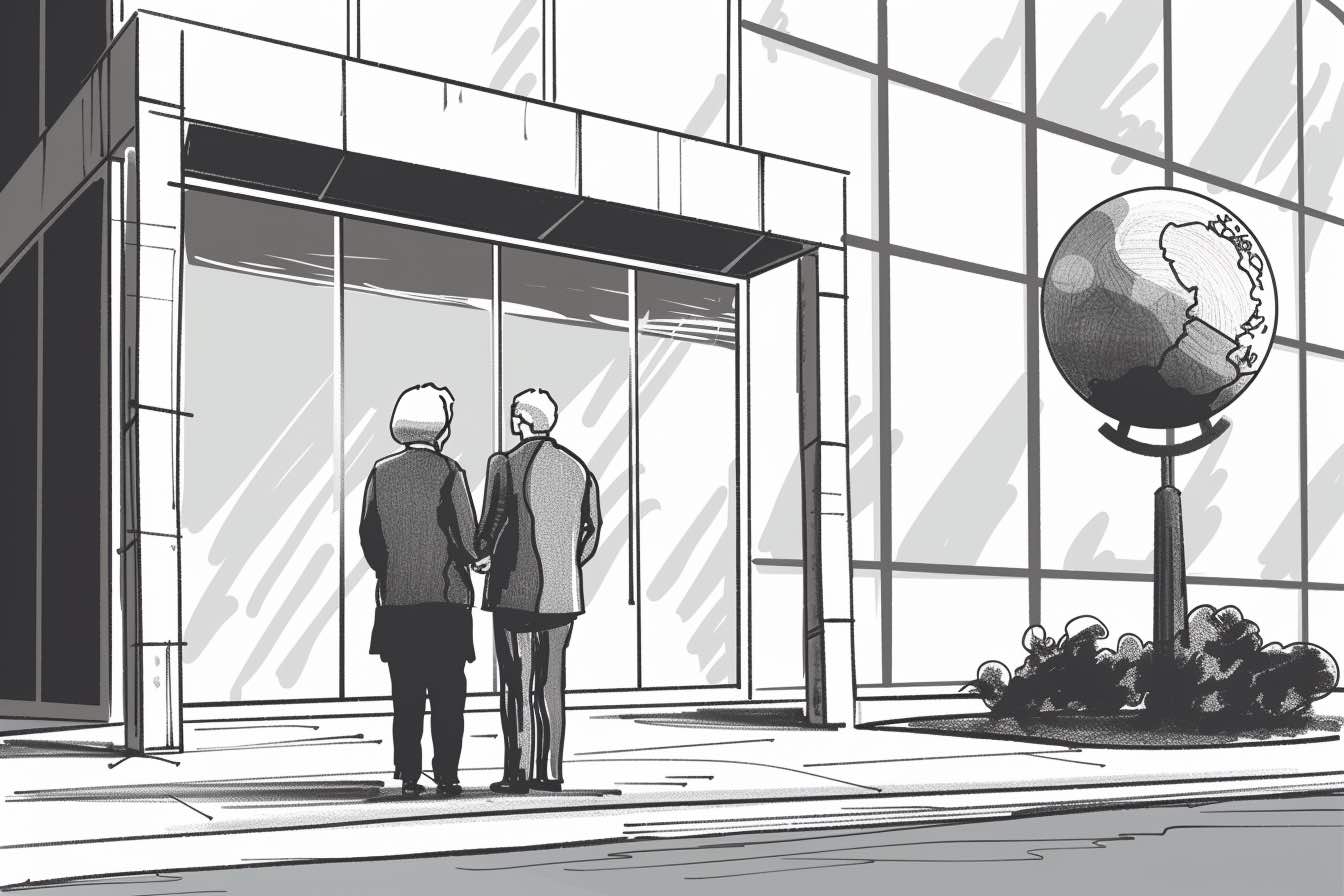Linda Giammanco canceled her recent stay at a Hilton property in northern Georgia, but the company charged her 40,000 points anyway. She’s been trying to retrieve her missing points since then, but Hilton won’t budge.
Can a consumer advocate rescue her points?
Maybe. Earlier this year, after a lengthy ban, my advocacy team and I started accepting loyalty program cases. We’ve helped readers get massive refunds on their credit card points and lent a hand with some loyalty card insurance claims. But mostly, our consumer advocacy team has kept a low profile on loyalty problems.
Giammanco’s case is different. Her problem raises questions about the value of Hilton’s program and the best way of approaching Hilton when you have a points problem. Ultimately, it underscores the fact that travel companies can do almost anything they want when it comes to your loyalty points — and that you need to become your own advocate to get the most out of these programs.
A canceled stay — but the Hilton points were gone
Giammanco cashed in 40,000 Hilton points for a night at the Hilton Garden Inn in Dalton, Ga. But her plans changed while she was in Georgia, and while she was a guest at the Doubletree by Hilton Atlanta Airport, she canceled her stay in Dalton.
“A representative from the Doubletree front desk said the points would revert back to my account,” she says.
“I’ve called and emailed Hilton support,” she says. “I’ve received promises from Hilton Honors to return the points. But it never happens and I keep being pushed to another supervisor with no results.”
But wait — are Hilton points refundable? Yes, they are. Almost all Hilton hotels will let you cancel an award night booking if you do it at least two days before your arrival. The points should show up in your account immediately. Giammanco had canceled before her deadline, but something may have gotten lost in translation when she canceled the reservation in person.
Let’s find out. But first, let’s see if Giammanco was on a fool’s errand.
Are Hilton points worth collecting?
Hilton Honors is the loyalty program offered by Hilton Hotels & Resorts. If you belong to its Hilton Honors program, you can earn and redeem points for stays at participating Hilton properties and other travel and leisure activities. But is it worth participating in Hilton’s loyalty program?
The pros of participating in Hilton Honors
Wide range of redemption options: You can redeem Hilton Honors points for stays at more than 6,000 Hilton properties worldwide, including luxury brands like Waldorf Astoria and Conrad Hotels & Resorts. You can also cash in your Hilton Honors points for flights, car rentals, and other travel experiences through the Hilton Honors travel portal.
Many ways to earn points: You can earn Hilton Honors points not only for stays at Hilton properties, but also for dining, shopping, and other activities. Credit card partners like American Express and Visa also offer generous bonus points for spending on their cards.
Elite status tiers: Hilton Honors offers four elite status tiers – Silver, Gold, Diamond, and Diamond Plus – that have increasing levels of benefits. They include room upgrades, breakfast, and award nights. You can earn elite status by staying at Hilton properties or achieving a certain number of points in a calendar year.
The cons of participating in Hilton Honors
Points lose value: Hilton, like other hotel companies, is in an almost constant process of increasing its redemption levels, which devalues points. Some redemptions may offer poor value. Paying for your hotel with cash instead of points may make sense on certain stays.
Limited transfer options: There are limited opportunities to transfer your Hilton Honors points to other loyalty programs, such as airlines. Also, the 10:1 transfer ratio makes transfers cost-prohibitive. You are better off leaving your points in the Hilton Honors program. (Related: How did 550,000 Hilton points become 55,000 Delta miles? And can you undo it, please?)
Loss of privacy and increase in spending: Hilton collects your personal data every time you stay in a hotel and use its loyalty program. It knows your room preference and spending patterns, and it has a complete history of your hotel visits when you participate in the Hilton Honors program. Loyalty programs sometimes sell this information to third parties, or it can be compromised in a data breach. And, of course, there is the ultimate goal of every loyalty program — to get you to spend more. I outline this in my free guide to loyalty programs.
How much are Hilton points worth?
It isn’t difficult to guess the value of a Hilton point. Giammanco used 40,000 points for a room that cost $150. That makes each point worth little less than four-tenths of a cent.
Other estimates have pegged the value of a Hilton point at about half a cent. Hilton has in the past also sold points directly to customers at 0.5 cents per point.
Of course, Hilton doesn’t disclose the actual value of its points. From time to time, travel companies will make an oblique reference to their point valuations in an earnings report, but it is never enough to hang an authoritative valuation on.
Only one thing is certain in the world of point points and miles — the value of awards is constantly declining. So 40,000 points today will be worth significantly less in a year. Never stockpile your awards. They are not an investment. They lose value over time. Earn ’em and burn ’em.
How many Hilton points do I need for a “free” night?
Award nights — or “free” nights, as Hilton calls them, are technically available for as few as 5,000 points and as many as 95,000 points per night for a standard room. However, for some speciality accommodations, you may spend upward of 120,000 points per night for a standard room. Hilton uses a dynamic system to price its rooms, so the number of points required may vary depending on the hotel, time of year and cost of a room.
Bear in mind that there is no such thing as a “free” night, contrary to the language used by Hilton and others. You have earned points by staying in a hotel or using a credit card. If the room nights were truly “free,” then anyone could claim them and not points would be required. But they are not free — it just sounds better.
How to use your Hilton points
Giammanco had the right idea. The most cost-effective use points for award nights is at a mid-priced hotel, like a Hilton Garden Inn. The number of points required for an award night at a Hilton Garden Inn is often — but not always — lower than the number required for an award night at a higher-tier hotel.
But there are other ways to stretch your points. Hilton Honors members can maximize their points by using them for room upgrades or other add-ons, such as breakfast or late check-out. These options require fewer points than an award night, plus they can make a hotel stay more comfortable and enjoyable.
If an award night wasn’t in her future, Giammanco could have also used her Hilton Honors points in conjunction with other frequent flyer programs. This is an easy way to burn through your points and fly somewhere if you need to, but as I mentioned before, the transfer rate is generally not advantageous to the member.
By combining points with miles, travelers can often book more expensive flights or upgrades that would normally be out of reach.
By following these strategies, Hilton Honors members can get the most value out of their points and enjoy even more luxurious travel experiences.
Can Hilton just keep your points?
The bigger question here is: Can Hilton keep your points?
As a matter of fact, it can. Its terms and conditions are clear on that matter:
Accrued Points and Reward Certificates and Confirmations do not constitute property of the Members. Except as specifically provided herein, neither accrued Points nor Reward Certificates/Confirmations are transferable for any reason or by operation of law.
In other words, you do not own the points you earn. They belong to Hilton.
By the way, these terms are not unique to Hilton. Almost every travel loyalty program stipulates that the points you earn do not belong to you — and can be removed from your account for any reason. Some agreements even say that the company does not owe you an explanation for removing the points.
Most travelers don’t bother to read the fine print in their agreement and believe — falsely — that they own the points they’ve worked so hard to earn. But they don’t.
Almost every travel loyalty program stipulates that the points you earn do not belong to you — and can be removed from your account for any reason. Some agreements even say that the company does not owe you an explanation for removing the points.— Christopher Elliott
“I need higher-level contacts”
Giammanco wasn’t about to accept the loss of her 40,000 points. She emailed me to tell me that she wanted to appeal this to someone at the executive level. I list the names, numbers and email addresses of Hilton’s executives on my consumer advocacy site, Elliott.org.
But Giammanco wanted a better name. “I need the higher-level contacts for the Hilton Honors program,” she told me.
That would be Mark Weinstein, Hilton’s chief marketing officer. Mark is extra responsive to emails and in my experience, he tries to resolve any loyalty problems quickly and fairly. But instead of bothering Mark with this over a holiday weekend, I thought I would try my advocacy channels, so I reached out to Hilton on Giammanco’s behalf. (Read here about a bride who was billed for hotel rooms that went unused.)
Hilton “sincerely” apologizes for the missing 40,000 points
Within 48 hours, Giammanco had a written response — and a resolution — from Hilton.
I sincerely apologize for any inconvenience caused to you.
Post reviewing your case file, in an effort to resolve your concern. I am taking the ownership and issuing the 40,000 Hilton Honors points to your account. I hope you will consider it as a commitment towards our service. Please allow us 24-48 hours to reflect these points in your Honors account.
There are a few things I like about that response. It was fast and didn’t mince words. Also, it talked about “taking the ownership” of the problem — in other words, not placing the blame on another department or person. Hilton was fixing the problem now, in the interests of good customer service.
Smart move, refunding those 40,000 points. Something tells me Giammanco would have moved her business to another hotel if Hilton hadn’t done the right thing.




